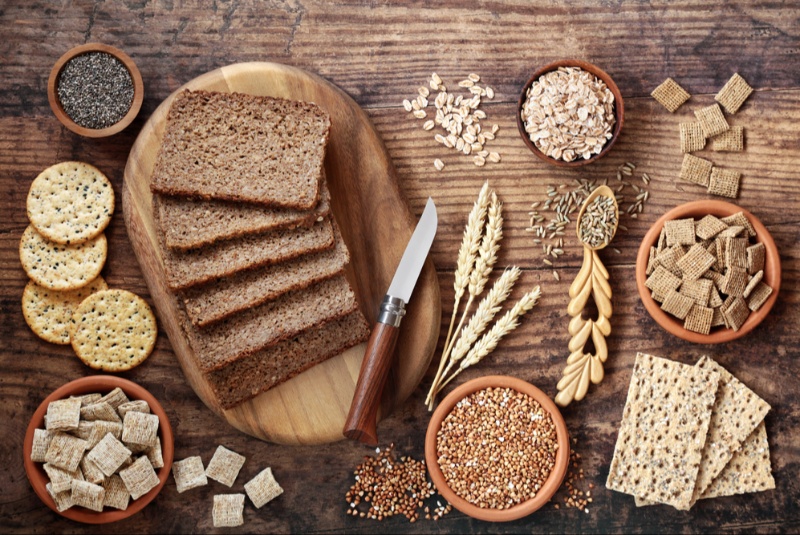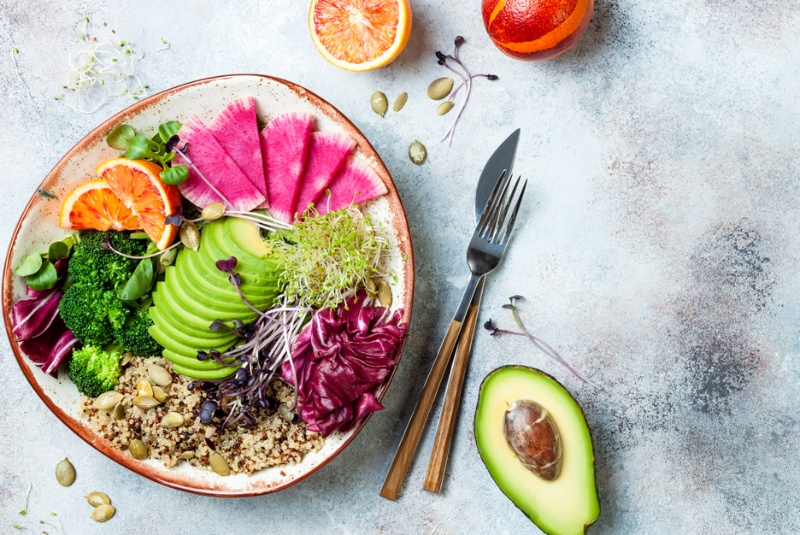The adage "you are what you eat" has long been a guiding principle for those seeking to improve their physical health, but its implications stretch far beyond the confines of one's waistline. As research into cognitive health advances, the connection between diet and brain function has become undeniably clear. The food choices we make on a daily basis can either serve as a catalyst for cognitive decline or as powerful agents in the fight to maintain and improve our mental prowess. With the rise in neurodegenerative diseases and age-related cognitive decline, the quest for an optimal diet for the brain is more pressing than ever.
The Cognitive Culprits: Understanding Brain Fog Factors
Before delving into the brain-boosting menu, it is crucial to identify dietary culprits that contribute to cognitive fog and decline. Processed foods high in sugar and trans fats are notorious for their detrimental effects on brain health. These foods can induce inflammation and oxidative stress, leading to cellular damage within the brain. Excessive consumption of such foods not only hinders cognitive performance in the short term but also increases the risk of developing more serious cognitive impairments later in life.
Brain-Enhancing Eats: Foods to Favor
Fortunately, the path to a nourishing brain diet is rich with variety and flavor. Here is a curated list of foods that have been shown to combat cognitive decline and should be staples in a brain-healthy diet:
1. Leafy Greens: The Verdant Virtuosos
A verdant array of leafy greens like spinach, kale, and swiss chard should be at the top of your grocery list. These nutrient powerhouses are rich in vitamins E and K, folate, and beta-carotene—nutrients linked to slowing cognitive decline. A study from Rush University Medical Center showed that individuals who consumed one to two servings of green leafy vegetables per day had the cognitive abilities of a person 11 years younger than those who consumed none.
2. Berries: The Antioxidant Alchemists
Berries, particularly blueberries, strawberries, and blackberries, are packed with antioxidants known as flavonoids. These compounds are celebrated for their role in enhancing memory and delaying cognitive aging. The Nurses' Health Study found that women who consumed two or more servings of strawberries and blueberries each week delayed memory decline by up to two and a half years.
3. Fatty Fish: The Omega-3 Oasis
Fatty fish like salmon, trout, mackerel, and sardines are rich sources of omega-3 fatty acids, essential components for brain health. Omega-3s, particularly DHA, are integral to the structure of brain cells and are known to enhance the synaptic plasticity of neurons, which is crucial for learning and memory. Regular consumption of these fatty acids is associated with a lower risk of cognitive decline and Alzheimer's disease.
4. Nuts and Seeds: The Cognitive Crusaders
Nuts and seeds are not just for birds; they are cognitive enhancers for humans too. These little packages of nutrition, especially walnuts and flaxseeds, are full of omega-3 fatty acids, antioxidants, and vitamin E, which has been shown to prevent cognitive decline. As an added bonus, they also provide a healthful crunch to salads and snacks.
5. Whole Grains: The Brain's Energy Engines
Complex carbohydrates like those found in whole grains are vital for brain health because they provide a steady supply of energy in the form of glucose. Whole grains with a low glycemic index, such as oatmeal, brown rice, and bulgur wheat, release glucose slowly into the bloodstream, keeping you mentally alert throughout the day.

6. Coffee and Tea: The Mindful Mornings
Moderate consumption of coffee and tea can be beneficial for your brain. Caffeine can not only sharpen your concentration but also reduce the risk of neurological diseases. Moreover, tea contains antioxidants and the amino acid L-theanine, which can modulate brain function.
7. Dark Chocolate: The Blissful Brain Booster
Dark chocolate, with at least 70% cocoa content, is another powerful source of antioxidants. It contains flavonoids, caffeine, and theobromine, which have been linked to improved brain function. This doesn't mean you should consume it in excess, but a small piece of dark chocolate can be a guilt-free treat that's also good for your brain.
8. Turmeric: The Golden Glory
This yellow spice has gained a reputation for its anti-inflammatory and antioxidant properties. Curcumin, the active ingredient in turmeric, can cross the blood-brain barrier and has been shown to directly enter the brain and benefit the cells there. It's also been linked to improvements in memory and brain function in people suffering from Alzheimer’s disease.
9. Eggs: The Memory Mavens
Eggs are a source of several nutrients tied to brain health, including vitamins B6 and B12, folate, and choline. Choline is particularly significant in creating acetylcholine, a neurotransmitter that regulates mood and memory. Despite past concerns over cholesterol, more recent studies have recognized the role of eggs in a balanced diet.
10. Avocados: The Creamy Cognition Companions
Though often maligned for their fat content, avocados are full of good fats that help to maintain healthy blood flow, a critical element for a healthy brain. They also contain vitamins K and folate, which help prevent blood clots in the brain (protecting against stroke) as well as improve cognitive function, especially memory and concentration.
Crafting the Cognitive Cuisine
Incorporating these foods into a daily diet can transform meals into a feast for the brain. Here are some brain-boosting dietary patterns and meal ideas:
The Mediterranean Diet: A Brain-Healthy Blueprint
The Mediterranean diet, rich in fruits, vegetables, nuts, whole grains, and fish, is often heralded for its cardiovascular benefits. However, it is also acclaimed for its positive effects on brain health. This dietary pattern is high in the very nutrients discussed and low in the processed foods and sugars that can harm cognitive function.
Mindful Meal Planning
- Breakfast: Start the day with a bowl of oatmeal topped with a mix of berries and walnuts, or scramble some eggs with leafy greens for a choline and folate-rich breakfast.
- Lunch: Opt for a quinoa salad garnished with slices of avocado, chunks of grilled salmon, and a sprinkle of seeds.
- Dinner: Prepare a stir-fry with an array of vegetables, turmeric, and lean protein, served over brown rice or whole-grain pasta.
- Snacks: Keep it simple with apple slices and almond butter or a few pieces of dark chocolate.
- Beverages: Replace sugary drinks with green tea or black coffee, and keep hydrated with plenty of water throughout the day.
Feasting for the Mind's Future
In the fight against cognitive decline, our best weapon may indeed be our fork. As we understand more about how nutrients affect brain structure and function, we can make smarter choices about what we put on our plate. A diet rich in brain-boosting foods, combined with regular physical activity, adequate sleep, and mental stimulation, can help to ensure that our cognitive function remains strong and vibrant throughout the lifespan.
Remember, while incorporating these foods into your diet, moderation and balance are key. It's about making sustainable changes to eating habits that not only fight cognitive decline but also contribute to an overall healthier and happier life. As research continues to evolve, the intricate relationship between diet and brain health will further clarify, offering us deeper insights into how we can nourish not just our bodies, but our minds as well.




